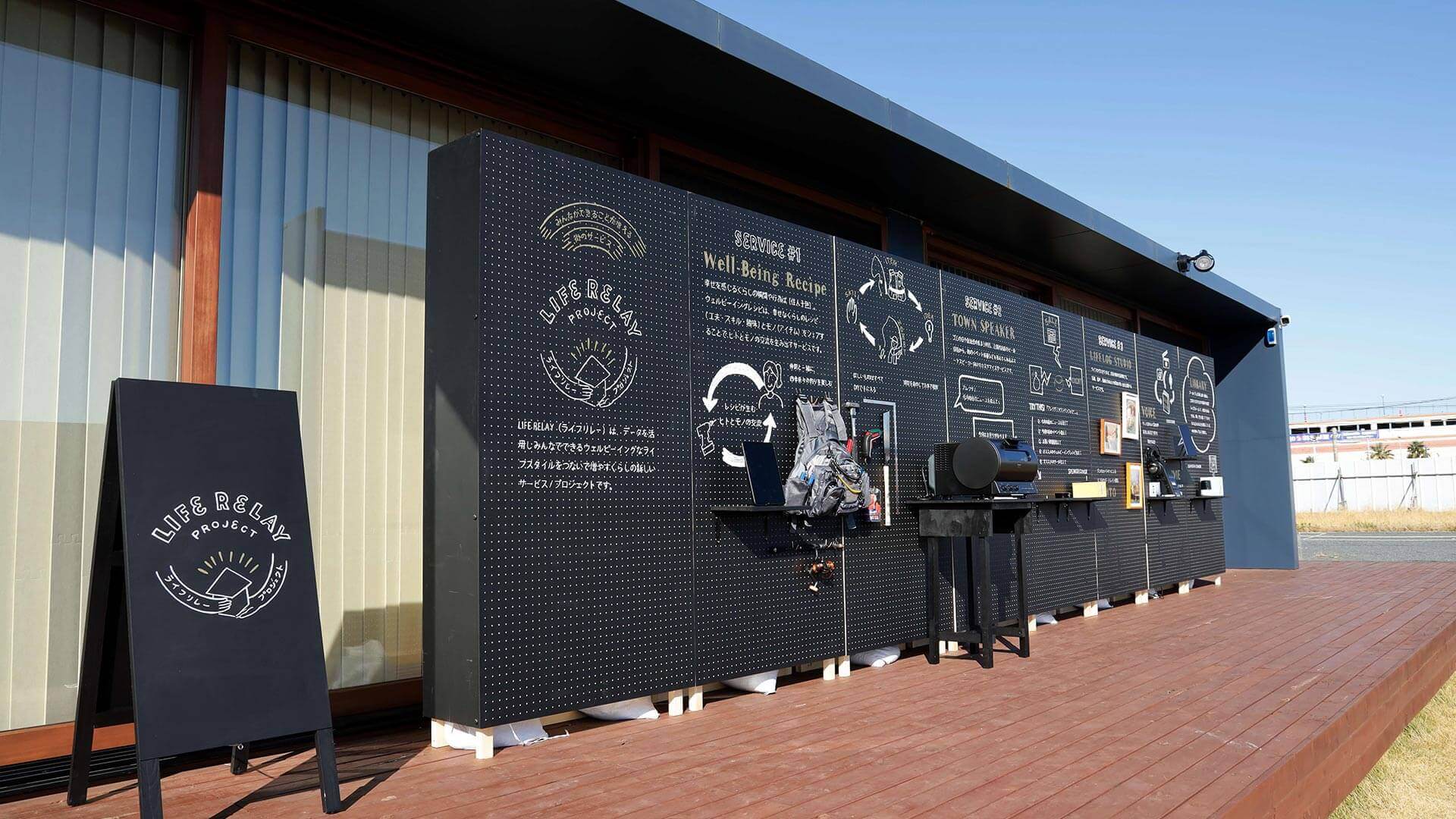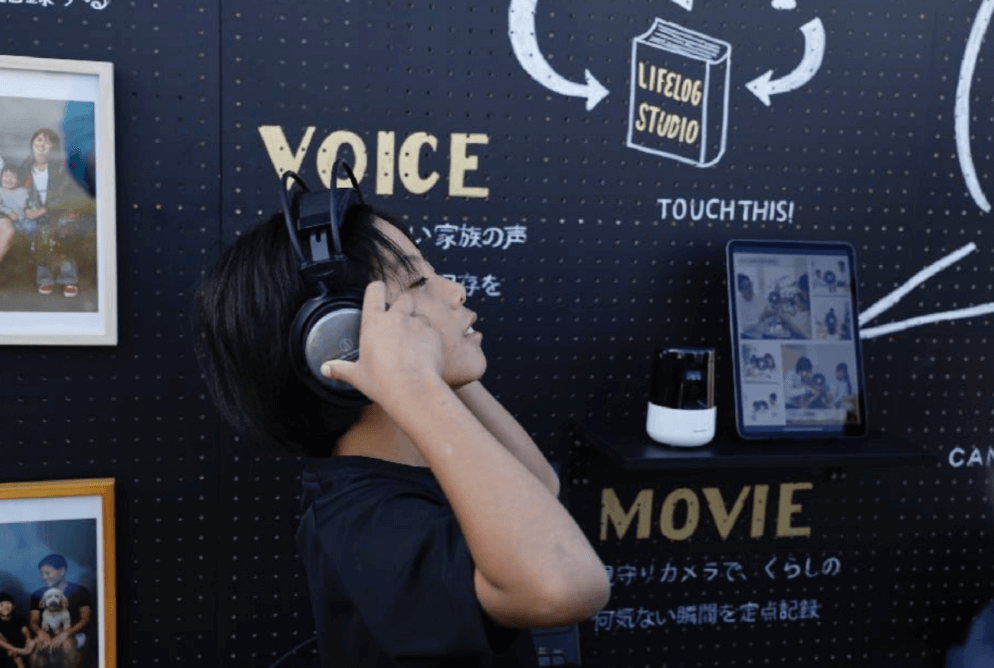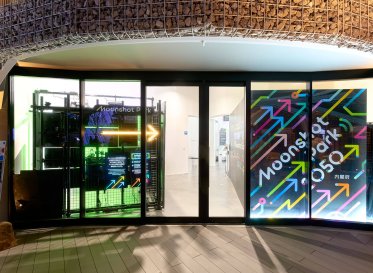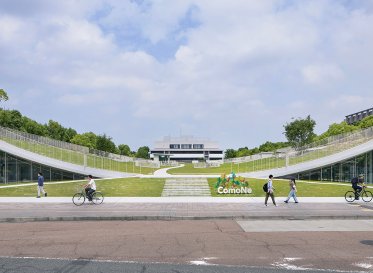
Imagining future living through service design for the Fujisawa Smart Town
An IoT utopia for the next 100 years, Fujisawa Sustainable Smart Town is a ‘smart town’ like no other – the first one to be built from scratch in Japan. But beyond off-grid energy reserves and ride-sharing systems, can a sense of community also be built? The answer may be in service design.
From a solution-driven approach to user-driven approach
Cities and towns may be getting smarter and greener, but few are born as one. Fujisawa Sustainable Smart Town (FSST) is a glimpse into the future of living – a $740 million project created by Panasonic in 2014 with the aim of creating a sustainable town that will last for 100 years. Built on the site of a former Panasonic plant in Fujisawa City, on the outskirts of Tokyo, each of the 1000 homes in the smart town is equipped with Panasonic products, and built-in IoT technology (Internet of Things) and ICT technology (Information and Communication Technology), such as automatic push notifications for disasters, as well as medical services linked to residents’ health information.
Panasonic is adamant about FSST being more than just ‘development’; the project is also a transformation of lifestyle, with a sense of community at the heart of the project and town itself. So what services are needed to continue adding value to the town over the lifetime of its residents? Panasonic’s Digital Marketing Department and Loftwork joined hands to design a new service for residents, using a user-driven approach, rather than a solution-driven one.
Growing XS needs to XL provisions
As the oft-quoted design thinking mantra goes: “A design isn’t finished until somebody is using it.”
When the project kicked off in April, 2018, the team had considered using the various data that was being acquired by FSST, but this would lead to a service design without the actual residents, who are the actual users of the service. Rather than using such data to inform a more conventional solution-driven approach, Loftwork started the project with research – asking: “What kind of lifestyle do the residents want?”
The user-driven values of ‘XS’ (Extra Small), ‘LTV’ (Lifetime Value) and ‘Unknown Value’ were utilized as starting points, and from there, the challenge of making scalable services from the needs of individual residents to the ‘XL’ scope of the city began.

Phase 1: Design Research
During the research phase, interviews and participant observation with 14 residents of seven FSST households, ranging in years of residence, as well as three additional households in neighborhoods outside of the Smart Town.
An orientation towards a happier lifestyle predicated on wellbeing was also clearly visible. One key finding was that residents yearned for a new way of life, one that was linked to the idea of building a new town collectively. Rather than the urban lifestyle model of keeping to oneself, residents did, in fact, want to establish meaningful connections with one another, but often failed to act on these impulses due to Japan’s deeply-rooted conservative values.
Six opportunity areas were identified in which services should be created, as well as the service image that would lead to the formation of a culture and community in the town.

Phase 2: Service Design
From our findings, we established the concept of the service as a town that increases the number of things everyone can do. Here, the service was contextualized as a new form of sustainable service through which residents could increase their living skills through joint labor.
We interviewed experts in lifestyle, urban development and behavioral psychology and conducted workshops to develop specific service ideas. Preliminary testing with some residents garnered positive responses. However, in order to fully implement the service, scalability was something needed to be considered, so we conducted a ‘Prototyping and Testing’ Phase 3 to further refine the service through integration with smart technology, as well as to promote its value to more residents.

Phase 3: Prototyping and Testing
The concept of a ‘town that increases the number of things everyone can do’ was further refined into a service concept that ‘utilizes data to increase the number of ways of living that everyone can do together’ during this phase. Named ‘Life Relay’, the concept has also evolved into something that is unique to the Fujisawa Smart Town, which has the potential to acquire data on every aspect of living.
Ultimately, we prototyped three services that would contribute to community-building within FSST through utilizing lifestyle data.
Wellbeing Recipe: A sharing service for daily life recipes and goods. Not only are users able to share and teach their hobbies with others through app technology, it could also be useful in reducing the cast of starting a new lifestyle, hobby or lesson through sharing others’ underutilized assets.
Town Speaker: A smart speaker that gives residents information about the city. This customized smart speaker would provide answers to questions such as: What’s new in town? What’s happening in town? What’s on sale at the nearby shops? It also works in conjunction with the sharing service ‘Wellbeing Recipes’ to let you know when new recipes and items are available.
Lifelog Studio: A future photo album service that records your family’s life through photos, audio and video. As life goes on, the service gives families that have been recorded more ‘lifetime value’.
A hands-on exhibition was held at the container house on the FSST site, where demonstrations on the different services were conducted for a total of three weeks. Residents also were able to provide their feedback as the services were shown and broken down to them.
About Loftwork
Loftwork is a creative company dedicated to making a positive impact through design with a global community of innovators. Aside from providing innovative design solutions to global clients across various industries, Loftwork also operates a number of owned services and platforms. Learn more.
Subscribe to Loftwork Magazine for more stories in designs & innovation here.









